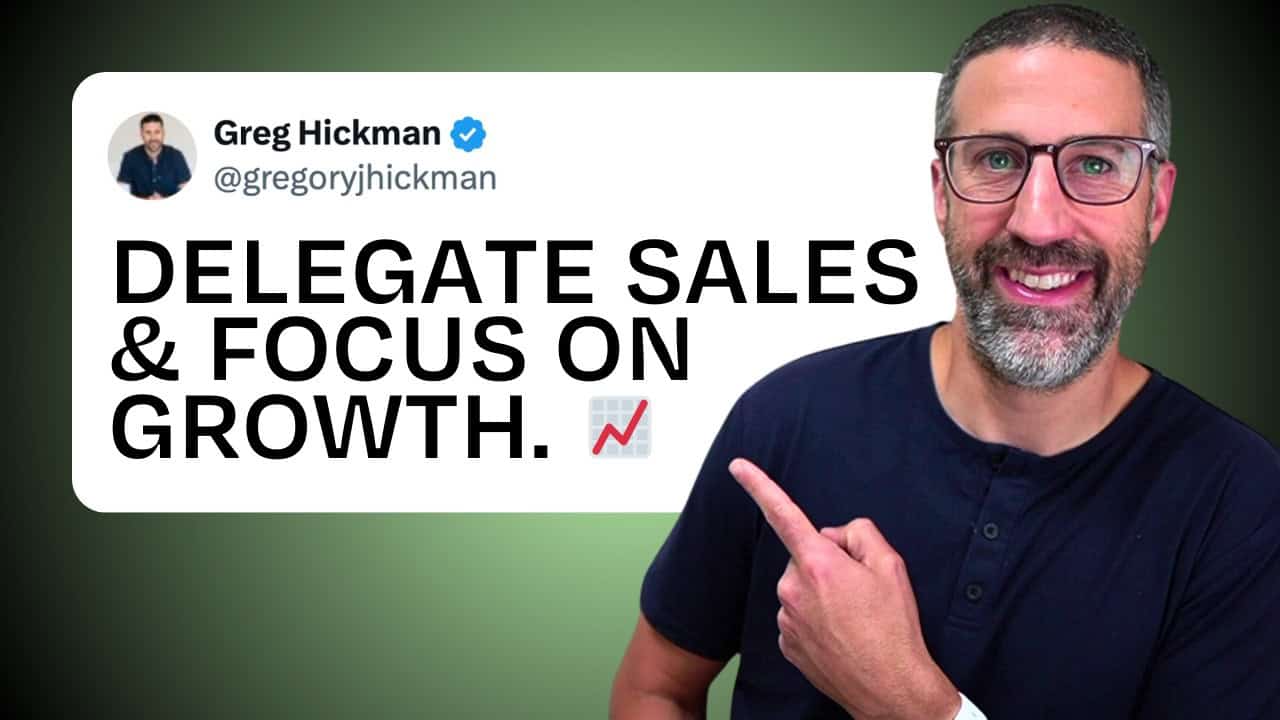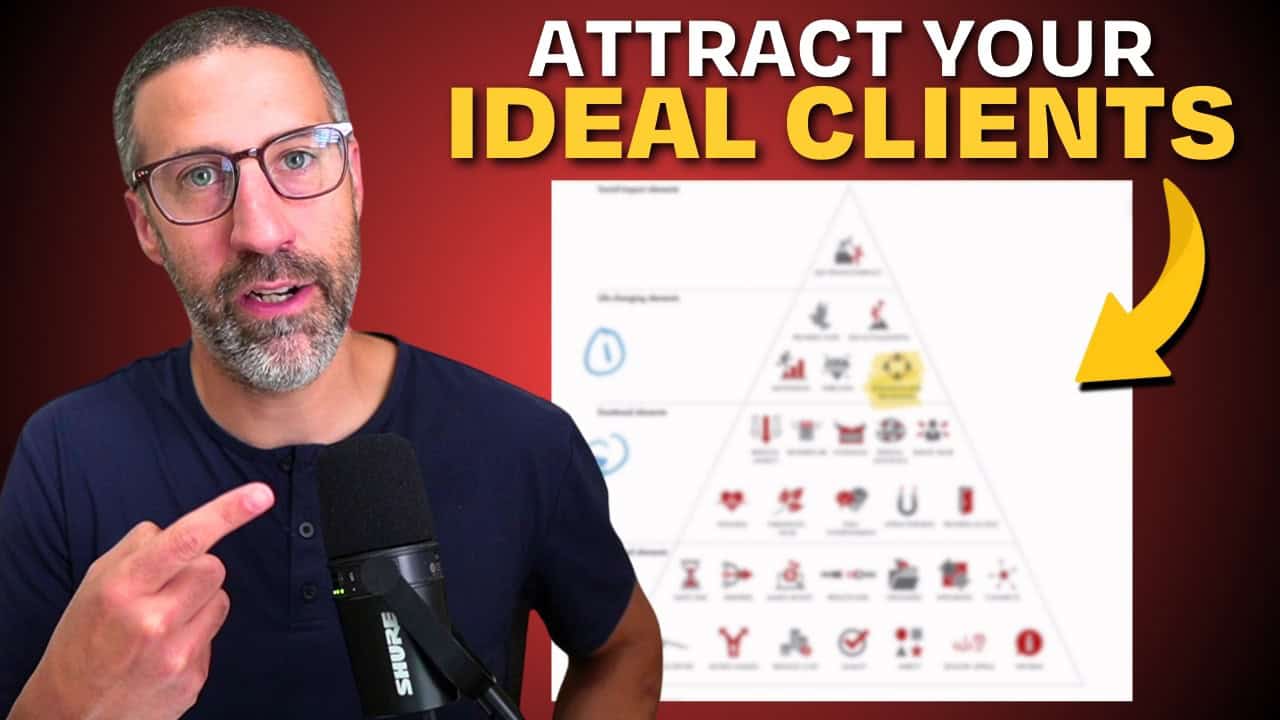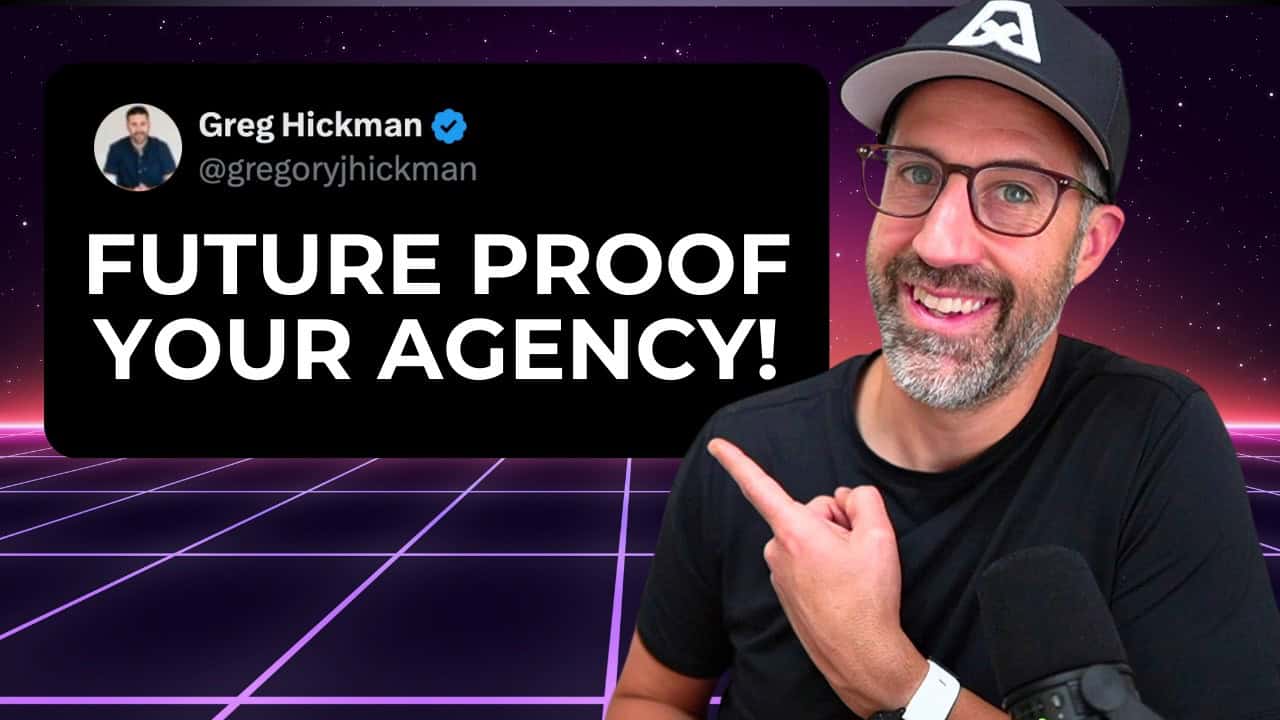So I’m talking to my friend and he has a small boutique agency doing email marketing for e-comm companies.
They go in, they deploy some specific campaigns and messaging strategies that yield a lot of sales.
If you look at what they pay him vs. the money he makes them… it’s an amazing ROI.
Since he’s delivered such value he’s continued to test raising his prices.
It’s not like he wasn’t profitable at his original, lower price points, he was testing his market to see what prospects actually valued his services at.
I see this happen a lot with agency owners.
They want to make more from clients.
They want to raise the retainers and offer more value because they see the results that are being generated.
But, all agencies hit this one inevitable point in the client relationship…
…when your client starts asking themselves if they can do it better and cheaper in-house.
This is actually really natural and a part of your client’s business growth thanks to your services but that means your relationship may come to an end.
Losing a client like this can hurt a lot of agency owners.
Cuz, they don’t have a full pipeline of opportunities waiting for them.So, like most agency owners, my friend will eventually lose this client and almost always sooner than he would like.
But, what if there was a better way to retain his clients for another 6-12+ months that was actually a WIN/WIN for both him and his client?
In today’s episode, I’m going to break down how the Modern Day Agency can position themselves to retain clients longer and increase the LTV (lifetime value).
Transcript / MP3
In this episode, I want to talk about an unconventional, more profitable way to retain clients.That’s actually a win-win for you and your clients. … Let’s get it going.For three years, my agency built funnels and automation systems for the biggest names in marketing today. Since then, I’ve transformed that agency into a hyper profitable training and consulting business. While everyone is out there talking about scale like it’s some sort of destination, we’ll be asking the real question, how do you transform your business into a more scalable model using the knowledge, skills, and expertise that you already have? This podcast is here to give you the answer. Join me and follow along as I learn, apply and share the strategies I’m using to build my multimillion-dollar business. My name is Greg Hickman and welcome to Scalable.What’s good y’all? Like I said, I want to talk about client retention. It really in a way that I don’t see other people talking about it and kind of looking at how to keep clients longer in a new way that’s actually a more profitable way for you, a more leveraged way for you. And a win-win for both you and your clients, so make more work less, all of those great things that’s leverage. Right. So I’m talking to my friend and he has a small boutique agency where they do email marketing services for e-comm companies and they go in, they deploy some specific campaigns and messaging strategies that yield a lot of sales for these e-comm businesses. And Yeah, if you look at what they pay him to, the money that is returned, it’s an amazing ROI and he’s continued to test raising the price and he hit a point where it has become more challenging to sell at the new price and it was at a still very profitable price point.And I see this happen a lot with a lot of agency owners. They want to make more from clients. They want to raise the retainers, offer more value because they see the results that are being generated. But in all of my agency days, I have [inaudible] yet to see a situation or what I’m about to share. It doesn’t happen. You will hit a point in your agency wear indoor if you’re like a consultant or whatnot, where the client, we’ll be able to bring that skill set and wants to bring that skill set in-house. And so in this example, he was selling a service that was like between 12 and 14 grand a month, still crazy high returns. Even if they get started and they’re doing that for three, six months, maybe even 12 months, if he’s lucky, they’ll hit a point where they’re going to sit there and say, man, that’s $150,000 a year plus salary that we can bring in house.Like why are we outsourcing this? Like if we can bring that expertise in house indoor, we can have multiple bodies doing this skillset in house and it becomes faster, more efficient and more profitable for them. So I always see this where there is this line where agencies have to have this conversation with clients where it’s really just they’ve grew out of them, right? Most businesses as they grow, depending upon the model, there are few exceptions. I’m not talking about the exceptions. They’re most cases, the client of yours will want to bring that expertise in house because it will be been more beneficial for them from a speed perspective, response time, dedicated staff and really, you know, the cost and profitability of paying you as a contractor and then having that in house, right. Multiple bodies to one body inside, inside versus outside. And so you get to this point where it happens at almost all agencies.And what’s interesting is having been on both sides when I was, um, in the agency world working with large brands, you know, at the time I didn’t really think much of it, but at least the clients we were worked with would always ask us to incorporate into our proposals and to our deliverables, some element of training to train their internal people. If it wasn’t on the front end of the project, it always found a way into the scope of work on the back end as things started to stabilize. Maybe we’d come in, we’d deploy a specific campaign or system, but then we’d have to train their internal team on how to manage it, optimize it. And really it turned into more of a consulting, giving them strategic advice and the relationship would then end because they now have it in house and this was exactly what is starting to happen with many agencies that work with clients for you know, six months, 12 months, and sometimes over 12 months where you’re providing a service and they hit a point where they’ve grown thanks to your service where it makes more sense for them to bring it in house.And this goes into a whole nother topic of why most agencies shouldn’t charge retainers and all of that stuff. Literally only a couple of models of agencies, types of agencies actually warrant having like a full fledged retainer business. But that’s for another, another episode. But this leads to the situation where you’re always churning out new agency clients because they’re bringing the skillset and the Labor that you were offering in house. Now, one word that I just mentioned there that’s really important is labor. Because many times when you hire, when you get hired as an agency owner, right? You’re bringing the strategy, you’re getting hired for what’s up here, but you’re also executing. So they’re also getting your hands to keyboard as I call it, the Labor. And at some point they’re going to really just want what’s up here and have a more cost for the labor.But you’ve been doing the labor and you’ve always been connecting the two or at least most agencies do. And that leads to them saying, well we’re going to do this in house now. We don’t need you anymore. And this kind of brings me back to the conversation I was having with my friend and also the conversations that we had with our own agencies when I was on the client side. So I worked for a multinational or an international retailer, has like a hundred stores around the world and I was on the marketing team and we hired big agencies and boutique to help us implement certain things. And we always wove into the contract at some point, sometimes in the beginning, sometimes later on that they needed to train our team on how to do it. And the agreement went from them doing a larger scope of deliverables, really down to consultation, education and training.And that usually extended that relationship with that agency. Um, or even some cases, I’ll call it a consultant for another 12 months because they got to serve as the strategic mind and we got to bring in the more affordable labor and the bodies that would execute on the strategy that they shared. So when we were on, when I look at like smaller companies that don’t have the budget to have like a chief marketing officer or uh, you know, things like that, you would get these strategy of the CMO through the consultant and agency training, but you’d have the Labor, the actual marketing team, the coordinators, the implementers in house, right? And so think about that from your agency. How can you create what I call the enabling offer where at some point it allows them to make the transition from having everything external to bringing it internal.But you now are the enabler of that process because you’re going to start training them on your intellectual property, start bringing in this systems in house with them and you start training them on how to do the work. This will often extend the relationship that you have with that client and it will allow you to collect more money. Maybe it’s not exactly the amount you were making when it was done for you, but in some cases it can actually, in many cases, it could actually be more than what you were charging for done for you because they have people implementing it, right? Cause they really want what’s up here. But you were weaving all of that in with the actual as to keyboard. So think about how you can create that, enable the enablement or the enabling offer where it’s training and education and strategy.How do you package that up so that you can now say, hey, client, um, I totally get that you want to bring in, in house. We’ve had a lot of success together. Uh, you can go bring in a bunch of these people which costs all this money or what we could do is phase it in and we can over the next six, 12 months, you can go hire the execution people which will cost you around x and x dollars and all just advise them and serve as their strategic strategic advisor and also start training them on the intellectual property and the process that I was doing for you guys so that they have that skillset in house. And then when you’re ready to bring in a management person and have the budget for that, you can go and do that. And if I need to train them, we can talk about that at that point.And what this does for you as the agency owner is one, it is a win for you because you actually get paid. Go back to getting paid for what’s up here, not just this, which means more leveraged for you and often more money with less work, less hours because you’re not necessarily getting paid for hours anymore. You’re getting paid for the knowledge transfer, which can be done in a variety of leverage ways, which we teach our clients, uh, in what we call the hybrid agency model within our foundations program. And that’s how you can now extend the life of a client. How you can retain clients for longer, that we’re going to let you go or fire you for whatever reason or really the reason that for whatever reason, the reason being that they were going to bring these skill sets in house, you can now enable them to accelerate how fast the new people inside their business now have that skillset and are brought to speed.And you still sort of serve as that safety net from making sure that they are successful as well. You know, you’ve been doing the work for x period of time. They already trust you because they hired you. Obviously if the relationship is on good terms and you didn’t burn any bridges, having this sort of transitional offer can extend how you work with clients. Now in another video I talked about, um, a handful of ways for you to grow your agency and make it more profitable, which is by offering training, coaching and consulting and workshops like those are things that you can bolt onto your agency that will make you more profitable and give you more leverage in how you package your services. Now a combination of all of that can serve really, really well. But for some of you and I know many of you that are maybe burnt out on the done, for you part, the full service part of your agency, this is a good way to transition out of that as well because again, it’s a win win.You get to keep clients, they get to bring that skill set in house and you get to start making the move from done for you into done with you and start getting in transition from getting paid for labor and hands to keyboard for getting paid for your thinking and the results that you can help drive in their business. And it will transform. It can also transform how you grow your agency in the future. So back to the, kind of the purpose of this video is how can you retain clients that were otherwise going to let you go because they want the services in house. You can offer a training or workshop or coaching model that allows you to enable them to bring that skill set in house with more confidence, more speed, and in a more affordable way because they might not be able to bring in all of the talent that is needed to fully replace you.But it could be more beneficial for both you and them if they have the execution, the implementation, the hands to keyboard labor in house at more affordable rates. Because you can hire all different levels of people, junior type people to do a lot of the implementation and they get to pay you for the actual strategic guidance, the plan, the guidance, and the nurturing of those people to be, you know, effective inside the business. So how do you retain clients, introduce an enablement offer, an enabling offer that allows them to bring the skill set in house. It will extend the lifetime value of the clients who have. And it’ll also position you back to getting paid for your thinking, which will open up a new door in your business to add more profitable programs, services that might arguably make you just walk away completely from your done for you services.Now, if you found this helpful and you’re in a position where you want to make this transition and have the opportunity to create that hybrid offer that will enable your clients who bring some things in house, that will help you transition into the leveraged revenue model that we like to teach our clients, then let us know there’s a link below, um, to learn a little bit more about our foundations program and you can schedule a call to chat with us, uh, to really learn about how we work and if it’s even a good fit for the type of agency and where you’re at right now in your agency. If you’ve been enjoying this content and you’ve been watching the videos on Youtube, we’d love you to subscribe over there. At the time of recording this, we’re super close to hitting our 1000 subscribers, so we would really appreciate that.Share this with one friend, one friend. If this episode helped you and you know someone else that this episode would help share it with one friend. And then if you’re that iTunes audio type person, we’d greatly appreciate a rating and review. It just helps us get out into, uh, into more earbuds in the audio world. So again, we’re super grateful to have you guys watching and commenting. If you have questions, leave them below. Otherwise, we will chat soon. If I gave you five to 10 new clients, would you or your agency break if so, your current agency model is broken? I struggle with this too, until I found a better way. By adding online programs, training, and coaching to our agency, we doubled profits without adding more hours. If you want to work directly with me and my team to transform your agency, visit myscalablebusiness.com to learn more.
Read more



